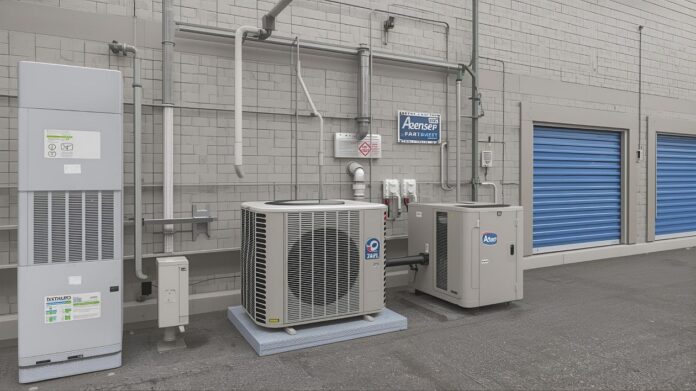Heating systems are essential for comfort in colder climates, but they rely on more than just boilers or furnaces to function properly. A crucial part of the system is the tank that stores fuel. When this storage component begins to fail, the entire heating process is at risk. Understanding the relationship between storage and heating efficiency helps homeowners recognize when it’s time to make updates and avoid unexpected breakdowns.
Why Storage Units Matter
Heating systems need a steady and reliable supply of fuel. Tanks provide that supply, holding enough oil to ensure homes remain warm even during the coldest stretches of winter. Without a functional storage unit, the most advanced furnace or boiler cannot operate effectively.
This makes timely heating oil tank replacement an important step in maintaining comfort and safety. A failing tank compromises fuel delivery, leading to inefficiency, higher costs, and potential disruptions in service.
Common Problems With Aging Systems
Over time, storage units naturally deteriorate. The following issues often indicate that replacement is needed:
- Corrosion: Metal tanks are vulnerable to rust, especially in humid environments.
- Leaks: Even small leaks can create major safety and environmental hazards.
- Sediment buildup: Rust and debris can clog lines, reducing heating efficiency.
- Structural instability: Tanks that shift or lean pose risks to property and safety.
These problems not only threaten heating performance but also increase costs and risks for homeowners.
The Role of Safety in Replacements
Heating oil is flammable and requires safe handling at every stage of storage and delivery. Old or damaged tanks increase the risk of leaks or spills, which can contaminate soil, groundwater, and even indoor air.
By replacing aging storage units, homeowners reduce these risks significantly. Modern tanks are designed with safety in mind, using advanced materials, double-wall construction, and improved monitoring systems to prevent failures.
Efficiency and Cost Savings
One of the less obvious benefits of replacing an old tank is improved efficiency. Modern systems reduce fuel loss, prevent leaks, and deliver a steady supply of clean oil to the heating unit. This reduces wasted energy and lowers overall heating costs.
Over time, these savings can offset the initial cost of replacement, making it a practical long-term investment.
Professional Inspections and Guidance
Most homeowners are not equipped to evaluate the condition of their storage systems. Professionals provide inspections that identify potential issues and recommend the best timing for replacement. These assessments also ensure compliance with safety and environmental regulations.
Working with experienced technicians guarantees that the process is managed safely, from removing the old tank to installing the new one.
Environmental Responsibility
Leaking tanks are not only costly but also harmful to the environment. Even small amounts of oil can contaminate soil and water, requiring expensive remediation. By choosing timely replacements, homeowners protect their properties and contribute to environmental sustainability.
Many modern tanks are built with eco-friendly features, including materials that resist corrosion and systems that detect leaks early. These upgrades help reduce environmental impact and ensure compliance with local laws.
What to Expect During Replacement
A replacement project typically begins with pumping out any remaining fuel, disconnecting the old tank, and safely disposing of it. For above-ground systems, this process is usually straightforward. Underground tanks may require excavation, which adds time and complexity.
Once the old system is removed, the new tank is installed, secured, and connected to the heating unit. Testing follows to ensure there are no leaks or performance issues before the system is put back into service.
Planning for the Future
Replacing a storage unit before it fails ensures homeowners are not left without heat during critical months. Scheduling replacement during warmer weather allows for flexibility, reduces stress, and avoids emergency fees.
By planning ahead, families maintain reliable heating, protect their property, and improve long-term efficiency.
Final Perspective
Heating systems rely heavily on safe, efficient fuel storage. When tanks age or fail, the entire system is compromised. Timely replacement supports safety, efficiency, and environmental responsibility while ensuring uninterrupted comfort. For homeowners, it’s an investment that safeguards both their home and their peace of mind.






